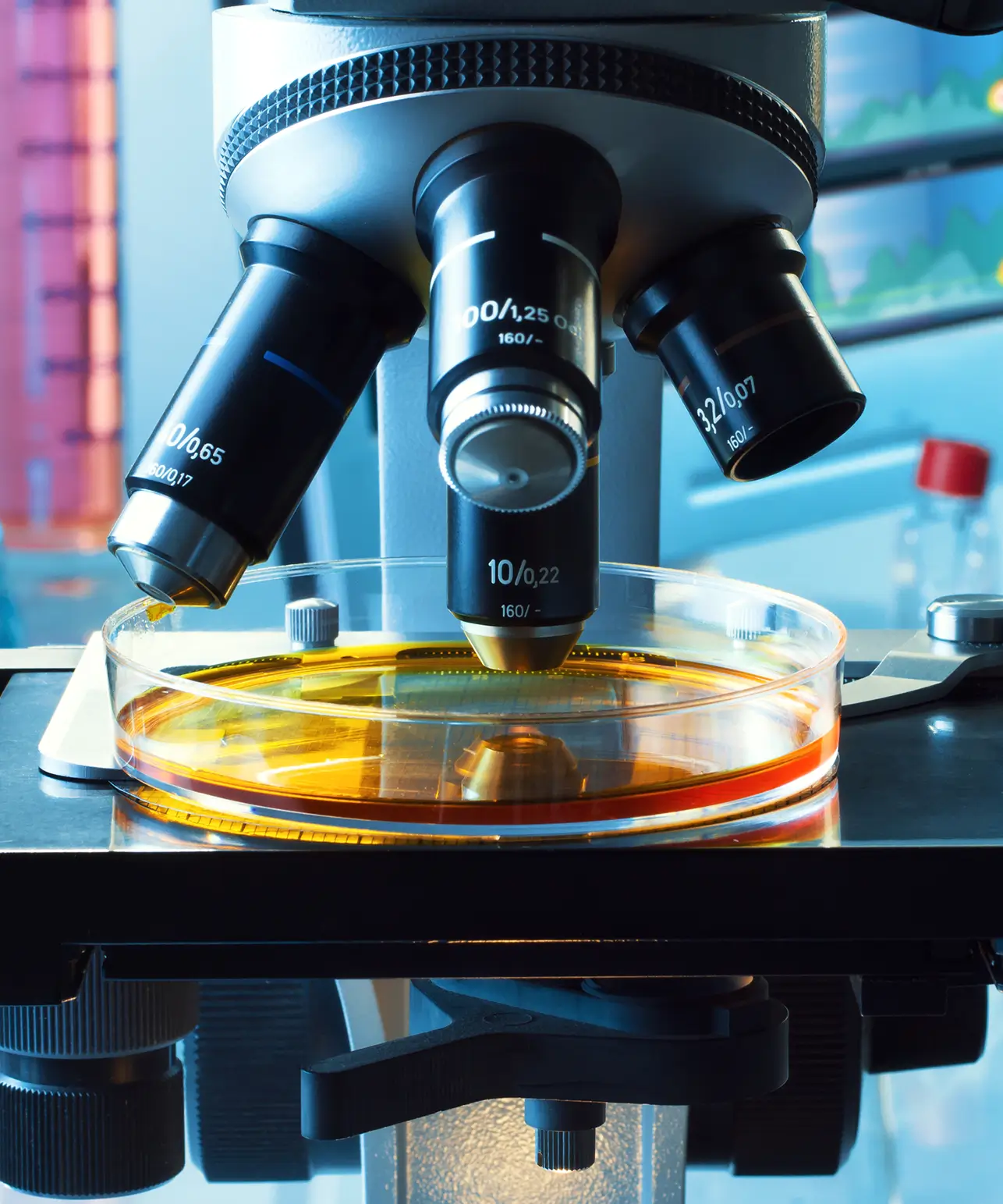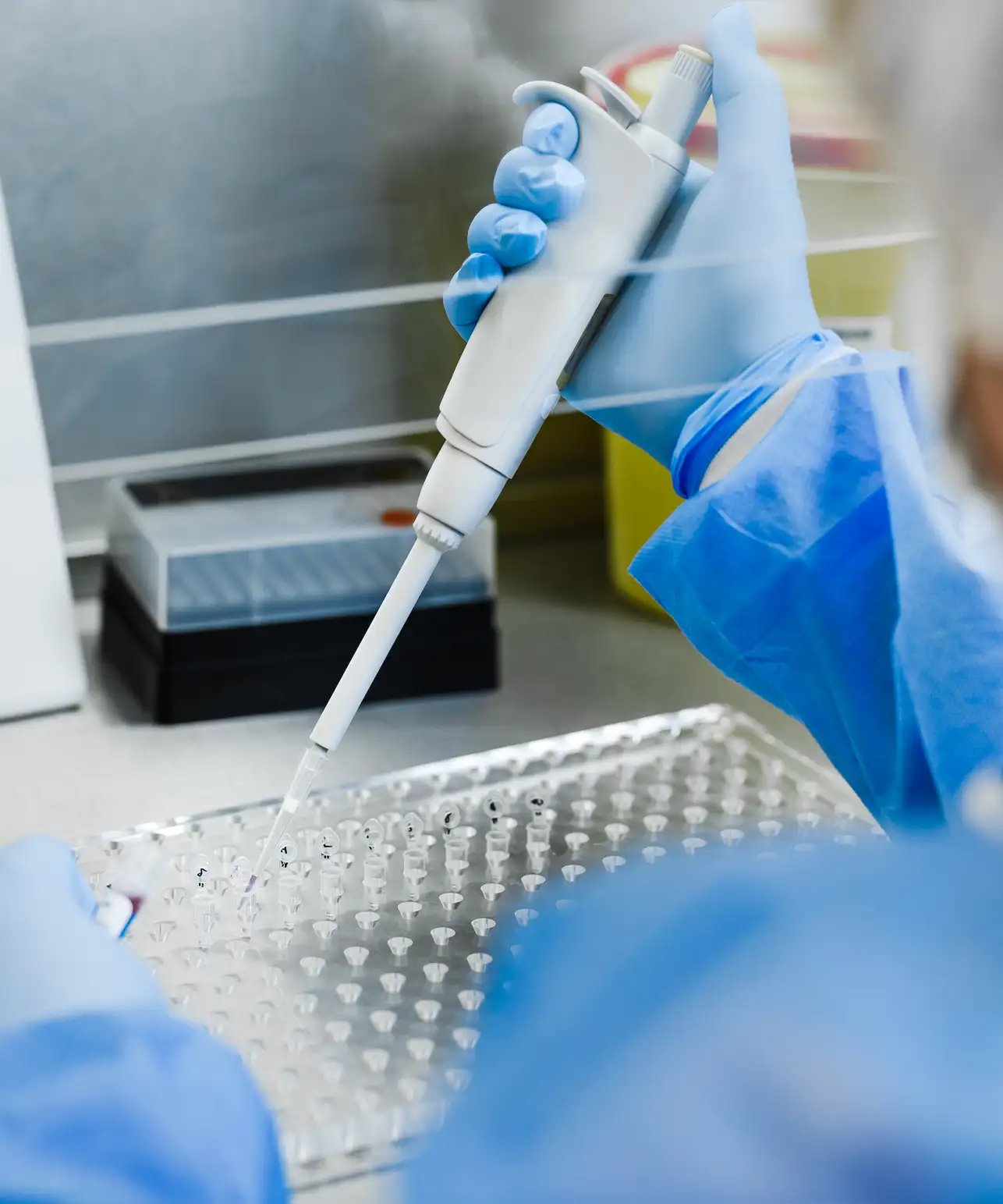Pathology Laboratory Software
At SCC Soft Computer, we offer a cutting-edge suite of solutions designed to streamline workflows, enhance productivity, and drive breakthroughs in patient care. Our mission is to revolutionize the way laboratories operate, whether you’re part of a health system, regional hospital, public health service, commercial lab, research facility, blood management organization, or transplant medicine unit.
Enterprise Scale
- Customized modules and product suites designed to meet the unique needs of enterprise laboratories.
- Seamless integration with existing enterprise systems to streamline workflows and enhance interoperability.
- Industry-leading security measures to safeguard sensitive laboratory data and ensure regulatory compliance.
- Dedicated technical support and comprehensive training programs.
Commercial Flexibility
- Flexible modular solutions that cater to the specific needs and budget constraints of smaller labs.
- Scalable cloud-based solutions that enable growth without significant upfront investment in infrastructure.
- Custom workflow engine to automate processes to improve operational efficiency.
- Full suite of outreach and operational solutions to improve customer service and revenue cycle management.
Driving Growth Across Diverse Industries
SCC Soft Computer is dedicated to delivering tailored solutions that enhance efficiency, accuracy, and excellence for clients across a wide range of industries, from complete healthcare systems to commercial labs.
Health Systems
Our solutions help health systems streamline workflows and improve the coordination of patient care, especially in facilities with multiple sites. By unifying systems under a single database, SCC products reduce turnaround times and facilitate seamless operation across different time zones, eliminating the need for multiple systems.
Solutions for Health Systems ›
Regional Hospitals
For regional hospitals, SCC solutions optimize resource utilization and elevate the quality of patient care. Our consistent interface design ensures a smooth user experience, while direct integration with laboratory instruments eliminates the need for middleware, simplifying operations and reducing errors.
Solutions for Regional Hospitals ›
Research
Research laboratories benefit from our solutions through enhanced data sharing and collaboration capabilities, crucial for high-volume testing environments. Our platforms perform real-time data analytics, enabling on-demand research and providing valuable insights that drive scientific discovery.
Solutions for Research ›
Commercial Laboratories
Commercial laboratories can achieve greater accuracy and efficiency in high-volume testing with SCC’s comprehensive solutions. Our LIS streamlines quality control workflows and minimizes the need for human intervention, allowing staff to focus on more critical tasks. Our integrated approach covers both the healthcare and business sides of operations, including revenue cycle management (RCM) for comprehensive operational oversight.
Solutions for Commercial Laboratories ›
Transplant Medicine
SCC Soft Computer’s solutions for Transplant Medicine provide unparalleled accuracy and efficiency, streamlining donor and recipient matching processes to ensure optimal outcomes. Our comprehensive software suite supports the entire transplant workflow, from data management and compliance tracking to real-time analytics, empowering healthcare professionals to deliver life-saving treatments with confidence.
Solutions for Transplant Medicine ›
Public Health
SCC Soft Computer’s solutions for Public Health Laboratories are designed to enhance disease surveillance, streamline testing workflows, and improve data management, ensuring timely and accurate reporting. Our robust software suite empowers public health professionals with advanced analytics and real-time monitoring capabilities, enabling them to respond swiftly and effectively to public health challenges.
Solutions for Public Health ›
Blood Management
SCC Soft Computer’s Blood Management solutions streamline the entire blood supply chain, from donor recruitment to transfusion tracking, ensuring the highest standards of safety and efficiency. Our advanced software suite offers seamless integration with laboratory systems, providing real-time data and analytics to optimize inventory management and enhance patient care.
Solutions for Blood Management ›
About SCC Soft Computer
Founded in 1979 by visionary leader Gilbert Hakim, SCC Soft Computer has established itself as a global pioneer in clinical information management systems. We specialize in providing state-of-the-art laboratory information systems (LIS) that empower healthcare organizations to optimize workflows, enhance patient care, and drive innovation. With a steadfast commitment to excellence, integrity, and customer focus, SCC Soft Computer combines cutting-edge technology with unparalleled support to deliver transformative solutions across diverse healthcare sectors. Our mission is to revolutionize healthcare by enabling laboratories worldwide to achieve unprecedented levels of efficiency and accuracy, ensuring that our clients remain at the forefront of medical advancements.
About UsPathology Laboratory Software
In the rapidly evolving landscape of modern healthcare, pathology laboratories play a pivotal role in disease diagnosis, treatment monitoring, and preventative medicine. The sheer volume and complexity of data generated in these labs necessitate robust and efficient management systems. This is where pathology laboratory software steps in, transforming traditional, often manual, workflows into streamlined, digital processes. From specimen tracking to report generation and data analysis, this software is indispensable for ensuring accuracy, enhancing efficiency, and ultimately improving patient outcomes.
The demand for accessible and adaptable solutions has led to the emergence of various software options, including those offering a pathology laboratory software free trial or even entirely free versions for smaller operations. While fully featured, enterprise-grade solutions often come with a significant investment, the availability of options like offline pathology software free download or pathology laboratory software open source initiatives demonstrates a growing trend towards wider accessibility and customization for different lab needs and budgets.
Best Pathology Laboratory Software
Choosing the best pathology laboratory software is a critical decision for any diagnostic center. The ideal solution depends on a multitude of factors, including the lab’s size, specific testing repertoire, budget, and integration requirements. While a truly best pathology laboratory software free solution with all advanced features is rare, many providers offer free trials or scaled-down versions that can be beneficial for small labs or for evaluation purposes.
For personal computers, finding the best pathology laboratory software for PC often involves looking for systems that are user-friendly, offer robust reporting capabilities, and can integrate with existing lab equipment. Many modern solutions are cloud-based, offering flexibility and accessibility from various devices, but dedicated PC-based software remains popular for labs preferring local control over their data.
One significant development in this sector is the rise of pathology laboratory software open source projects. These initiatives allow for greater transparency, customization, and community-driven development, which can be particularly appealing to labs with in-house IT capabilities or those looking to tailor the software precisely to their unique workflows. Open-source solutions often foster innovation and can be a cost-effective alternative for labs willing to invest in development and maintenance.
At the heart of many modern pathology labs lies a LIS pathology software, or laboratory information system. Pathology management software solutions are designed to manage and track clinical data across the entire laboratory workflow, from patient registration and order entry to sample processing, result validation, and report delivery. These systems are crucial for maintaining data integrity, automating tasks, reducing human error, and improving turnaround times. The capabilities of medical lab software in general, and LIS specifically, are constantly expanding, incorporating features like real-time data access, advanced analytics, and seamless integration with electronic health records (EHRs) and billing systems. This comprehensive approach is vital for efficient operation and optimal patient care.
Key features to look for in the best pathology laboratory software include:
- Automated Workflow Management: Streamlining processes from specimen collection to report generation, minimizing manual intervention and errors
- Data Integration: Seamless connectivity with various lab instruments, such as hematology analyzers, chemistry analyzers, and molecular diagnostic instruments, for consistent information flow and accuracy
- Customizable Reporting Templates: Ability to create standardized, professional reports tailored to specific needs (e.g., biopsy reports, cytology reports, hematology reports), with automated distribution options
- Real-time Data Access: Enabling lab technicians and pathologists to make timely decisions, improving patient care outcomes
- Enhanced Collaboration and Communication: Tools for seamless data sharing among lab personnel and other healthcare professionals
- Regulatory Compliance and Security: Adherence to standards like GDPR, with robust data encryption and secure management protocols
- Streamlined Sample Management: Detailed inventory tracking, automated labeling and barcoding, and dashboards for monitoring sample status and turnaround times.
- Billing Integration: Seamless integration with existing billing software to automate processes and ensure accurate payments
- Data-Driven Decision Making: Analytics and reporting tools for informed decisions.
- User-Friendly Interface: Intuitive design requiring minimal training for efficient task execution
Anatomic Pathology Laboratory Information System
The field of anatomic pathology, which focuses on the diagnosis of diseases based on macroscopic and microscopic examination of tissues and organs, has unique requirements for its information systems. An anatomic pathology laboratory information system is specifically designed to handle the intricate workflows associated with surgical pathology, cytology, and autopsy. This includes managing complex case accessioning, gross description, tissue processing, slide preparation, microscopic examination, and the generation of highly detailed diagnostic reports.
While a comprehensive anatomic pathology laboratory information system free solution might be limited in its advanced functionalities, there are often open-source components or basic systems that can be adapted for smaller practices or educational purposes. Resources like an anatomic pathology laboratory information system PDF manual can provide valuable insights into the functionalities and implementation of such systems, even if a full software solution isn’t immediately accessible.
The market for laboratory information system vendors is diverse, offering a range of specialized solutions for anatomic pathology. These vendors typically provide systems that can:
- Manage Specimen Tracking: From collection to slide archiving, ensuring complete chain of custody
- Support Grossing and Dictation: Integrated tools for recording macroscopic findings and pathologist dictations
- Facilitate Histology and Cytology Workflows: Tracking tissue processing, embedding, sectioning, and staining
- Integrate with Imaging Systems: For capturing and storing microscopic images, crucial for digital pathology
- Generate Comprehensive Reports: Including complex diagnostic narratives, synoptic reporting, and incorporation of images
- Handle Molecular and Immunohistochemical Data: Increasingly important for personalized medicine
The selection of a specialized pathology software for anatomic pathology is crucial for ensuring diagnostic accuracy, efficiency, and compliance with regulatory standards. Many modern LIS systems offer modules specifically tailored to anatomic pathology, allowing for a unified approach to laboratory management across different disciplines.
What Equipment do Pathologists Use?
Pathologists rely on a sophisticated array of instruments to perform their vital work. Understanding what equipment do pathologists use in hospital settings and dedicated laboratories provides insight into the complexity of their daily tasks. The pathology lab equipment list is extensive and varies depending on the sub-specialty, but some core instruments are universally employed.
For the examination of tissues and cells, microscopes are paramount. These include standard light microscopes for routine histological and cytological examinations, phase contrast microscopes for live cell observation, and advanced electron microscopes for ultrastructural analysis.
Automated analyzers are essential for high-throughput testing, particularly in chemical pathology and hematology. These machines can perform a wide range of tests, such as complete blood counts (CBCs), biochemical panels, and electrolyte measurements, significantly increasing efficiency and accuracy. In a chemical pathology laboratory, one would find highly specialized equipment for analyzing body fluids for various chemical components, enzymes, hormones, and drugs. This includes spectrophotometers, immunoassay analyzers, chromatography systems, and mass spectrometers.
Histology equipment is critical for preparing tissue samples for microscopic examination. This includes:
- Microtomes: For cutting extremely thin slices of tissue
- Tissue Processors: Automating dehydration, clearing, and infiltration of tissue samples with paraffin wax
- Embedding Stations: For embedding processed tissues into paraffin blocks
- Staining Equipment: For applying various stains to highlight cellular structures and abnormal features
Molecular diagnostic equipment, such as Polymerase Chain Reaction (PCR) machines and DNA sequencers, are becoming increasingly important for detecting pathogens, genetic mutations, and cancer biomarkers. Flow cytometers are used for immunophenotyping, crucial in diagnosing hematological malignancies.
Beyond these specialized tools, pathologists and laboratory staff also utilize a range of general laboratory equipment, including centrifuges for separating blood components, incubators for cultivating bacterial and fungal cultures, autoclaves for sterilization, and laminar flow hoods for maintaining sterile work environments. Safety equipment, such as personal protective equipment (PPE), biological safety cabinets, and emergency showers/eyewash stations, are also integral to any pathology lab. Pathology equipment companies play a crucial role in providing these advanced instruments and ensuring their maintenance and calibration.
What is the Difference Between a Medical Lab and a Pathology Lab?
While often used interchangeably by the general public, there are distinct differences between a “medical lab” (often referred to as a clinical laboratory) and a “pathology lab.” Understanding these distinctions is crucial for appreciating the breadth of laboratory pathology services and the specialized nature of each.
A clinical laboratory primarily focuses on the analysis of body fluids (such as blood, urine, and cerebrospinal fluid) to aid in the diagnosis, treatment, and prevention of disease. The pathology laboratory test list in a clinical lab typically includes:
- Hematology: Complete Blood Count (CBC), coagulation tests (PT, PTT)
- Clinical Chemistry: Basic and Comprehensive Metabolic Panels (BMP, CMP), lipid profiles, liver and kidney function tests, electrolyte levels, glucose
- Microbiology: Culture and sensitivity testing for bacteria and fungi, serology for infectious diseases
- Immunology: Autoimmune disease testing, allergy testing
- Urinalysis: Physical, chemical, and microscopic examination of urine
Clinical labs often process a high volume of samples with a strong emphasis on automation to ensure rapid turnaround times. The results are typically quantitative and are used by clinicians for immediate patient management. The pathology laboratory equipment list in a clinical lab would reflect these analytical needs, including automated analyzers, centrifuges, and blood gas machines.
A pathology lab, on the other hand, specializes in the study of disease through the examination of tissues, organs, and autopsies. Pathologists in these labs often interpret findings qualitatively and provide comprehensive diagnostic reports. Their work involves:
- Surgical Pathology: Macroscopic and microscopic examination of tissue biopsies and resected specimens to diagnose diseases like cancer, inflammatory conditions, and infections
- Cytopathology: Microscopic examination of cells, often collected through smears (e.g., Pap tests) or fine needle aspirations, to detect abnormalities
- Autopsy Pathology: Performing post-mortem examinations to determine the cause of death and study disease progression
- Molecular Pathology: Analyzing DNA, RNA, and protein for genetic mutations, gene expression, and other molecular markers relevant to disease
While both types of labs contribute to patient care through diagnostics, the pathology lab delves deeper into the morphological and molecular basis of disease, often requiring more extensive tissue processing and specialized staining techniques. The pathology laboratory equipment list for a pathology lab emphasizes tools for tissue handling, sectioning, staining, and microscopic examination. Clinical laboratories tend to focus on quantitative measurements of biomarkers in fluids, while pathology labs lean towards qualitative interpretations of cellular and tissue changes. Both are vital, interconnected components of a comprehensive healthcare system.
Choosing the Right LIS
Selecting the optimal LIS (laboratory information system) is a strategic decision that can significantly impact a pathology lab’s efficiency, accuracy, and overall success. When considering a LIS, such as popular options like SoftLab, or searching for the best LIS software for your specific needs, several key factors should guide your choice. Foremost among these is understanding your lab’s unique workflow and future growth plans. A robust LIS should offer comprehensive modules that cover all aspects of your operations, from pre-analytical processes like order entry and specimen tracking, through analytical phases with instrument interfaces and result validation, to post-analytical functions such as reporting and billing.
Interoperability with existing hospital information systems (HIS) or electronic health records (EHRs) is crucial for seamless data exchange and avoiding manual transcription errors. Look for a system with strong integration capabilities. Data security and regulatory compliance (e.g., HIPAA, CLIA, CAP) are non-negotiable; the chosen LIS must have robust security features and a demonstrable track record of compliance. User-friendliness and intuitive interfaces are also important, as they reduce training time and improve staff adoption. Finally, consider the vendor’s reputation for support, training, and ongoing development, ensuring the software will evolve with your lab’s needs and industry advancements.










